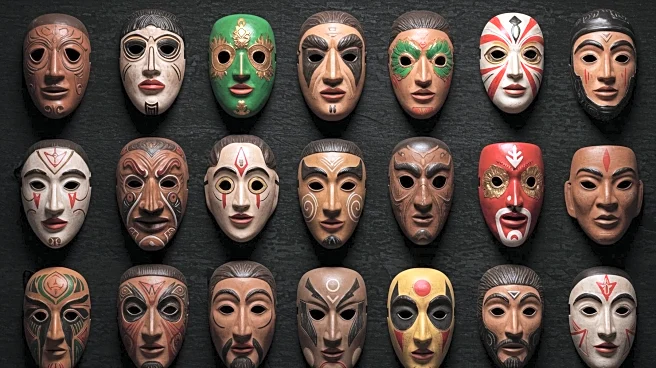What's Happening?
The cast of Netflix's One Piece live-action series has rallied in support of Charithra Chandran, an Indian-origin actor cast as Nefertari Vivi in the upcoming second season. Following the announcement, Chandran faced racist comments from some fans who argued that her skin color does not match the character's depiction in the manga and anime. Rob Colletti, who plays Wapol, criticized these comments on Instagram, highlighting the inconsistency in accepting fantastical elements of the show while rejecting diverse casting. Colletti emphasized that Chandran was chosen by the series creator, Eiichiro Oda, and noted the cultural influences in Vivi's character. Other cast members, including Jacob Gibson and Emily Rudd, echoed Colletti's sentiments, condemning racism and supporting the show's diverse representation.
Why It's Important?
This incident underscores ongoing challenges in the entertainment industry regarding representation and diversity. The backlash against Chandran's casting highlights resistance to inclusive casting choices, despite the industry's efforts to reflect diverse cultures and backgrounds. The support from the One Piece cast signifies a growing movement within the industry to stand against racism and promote inclusivity. This development is crucial as it may influence future casting decisions and encourage more diverse storytelling, impacting how audiences perceive and engage with media. The controversy also brings attention to the importance of representation in popular franchises, potentially affecting public discourse on race and identity.
What's Next?
Netflix has confirmed the release of One Piece Season 2 in 2026, along with a renewal for Season 3. As the series progresses, it is likely that the cast and creators will continue to address issues of representation and diversity. The backlash may prompt further discussions within the industry about casting practices and audience expectations. Additionally, Chandran's portrayal of Nefertari Vivi could serve as a benchmark for future casting decisions, potentially influencing how diverse characters are integrated into adaptations of popular media.
Beyond the Headlines
The controversy surrounding Chandran's casting raises broader questions about cultural representation in media. It challenges the notion of 'canon' and how it can be used to justify exclusionary practices. The support from the cast highlights a shift towards embracing diversity as a core value in storytelling, which could lead to long-term changes in how characters are portrayed across different media platforms. This incident may also inspire other actors and creators to advocate for more inclusive casting, fostering a more equitable entertainment landscape.










